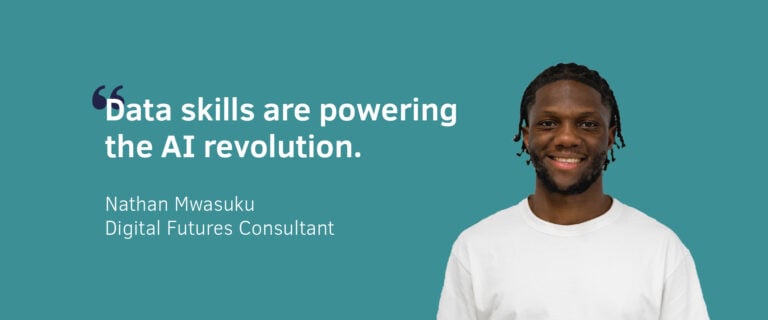Generative AI (GenAI) stands at the forefront of technological evolution, offering unparalleled opportunities across diverse sectors like healthcare, education, media, and entertainment. Its ability to innovate is as vast as it is nuanced, but it’s not without significant challenges. Ethical dilemmas, legal considerations, security concerns, and societal impacts are just a few of the hurdles we face as we integrate this technology into our daily lives.
The UK Government’s recently published their Generative AI Framework, a pivotal step towards safe and responsible AI usage. This guideline, tailored for civil servants and government bodies, serves as a beacon for organisations navigating the complex landscape of GenAI and at the heart of this framework lie 10 principles that serve as a comprehensive guide for ethical and secure GenAI usage.
Let’s delve into a few key principles to understand their practical impact:
- Principle 4: Meaningful Human Control – This principle emphasises the necessity of human oversight in AI decision-making processes, ensuring that AI actions align with organisational values and ethics. Most importantly, GenAI cannot be used to make strategic decisions.
- Principle 7: Openness and Collaboration – Advocating for transparency and co-operative efforts, this principle stresses the importance of sharing knowledge and methodologies, fostering a community of learning and growth in the GenAI domain.
- Principle 10: Alignment with Organisational Policies – It underscores the need for GenAI initiatives to be in harmony with existing organisational policies, ensuring a cohesive and integrated approach to technology adoption.
So, when we consider what makes up a successful GenAI implementation, three core elements are crucial:
- Infrastructure: Secure, reliable, and scalable infrastructure forms the backbone of any GenAI project. It must support the performance needs and quality standards of GenAI tools.
- Culture: A culture that encourages innovation, experimentation, and ethical practices is vital. It should align with the values of fairness, transparency, and accountability.
- Team: A multidisciplinary team, rich in diversity and expertise, is essential. Roles should be clearly defined, fostering effective collaboration within the team and with external stakeholders.
But, as with many other areas of technology, a major challenge in the successful implementation of GenAI projects lies in the scarcity of skilled professionals. This gap is exacerbated by the lack of diversity in the tech sector, particularly concerning the underrepresentation of women and minority groups. To bridge this gap, organisations must think innovatively – tapping into emerging talent pools and prioritising reskilling and upskilling of existing teams. By doing so, we not only address the talent shortage but also foster a diverse and inclusive GenAI landscape.
In conclusion, Generative AI is not just a fleeting trend; it’s a fundamental shift in how we approach problem-solving and innovation. By investing in talent development and aligning GenAI projects with organisational strategies, businesses can unlock unprecedented productivity, drive significant ROI, and pave the way for sustainable growth. Therefore, as we step into a future shaped by Generative AI, the onus is on us to build infrastructures and teams that can harness the true potential of AI, while navigating its ethical and societal implications. The UK Government’s GenAI Framework sets a precedent, guiding us towards a future where technology and human ingenuity converge to create a more efficient, ethical, and innovative world.







